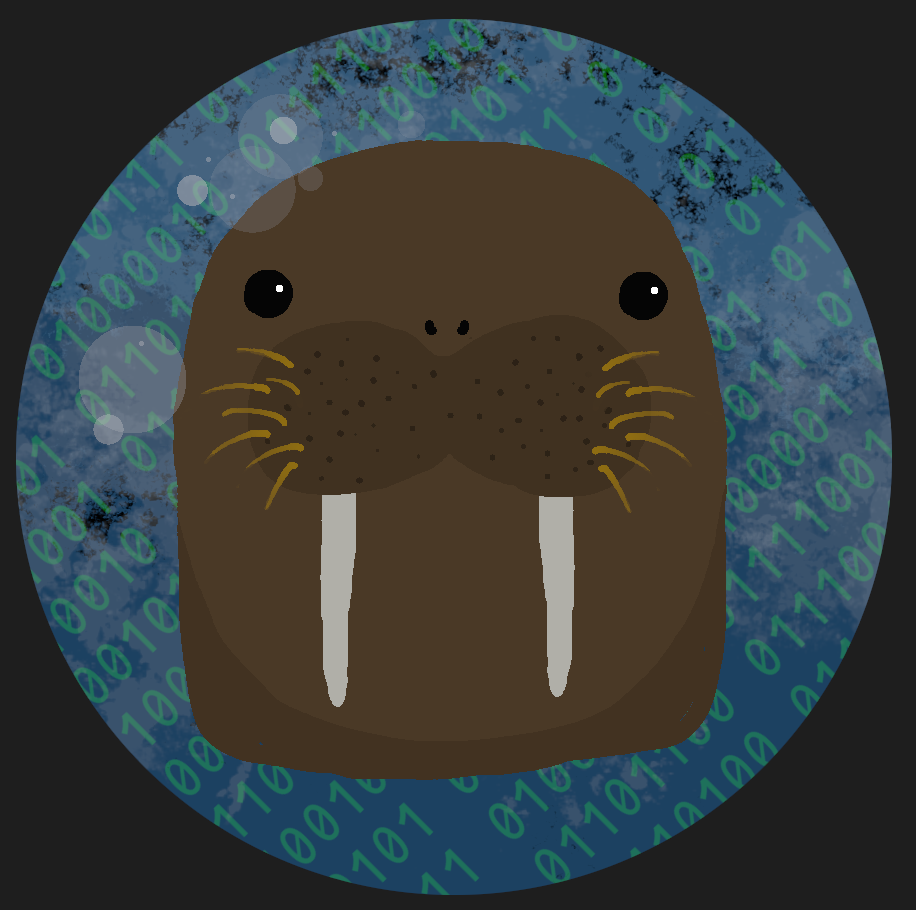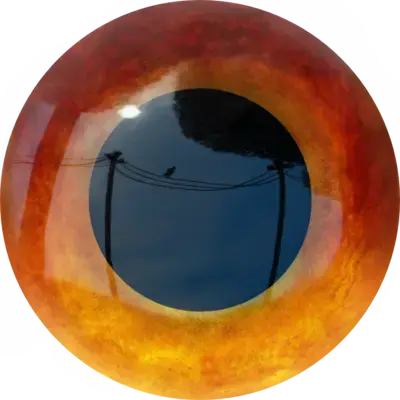Why Linux is portrayed as a Penguin?
deleted by creator
That makes sense
Here we go. …
Linux is the kernel.
Gnu refers to the userland tools.
Many say gnu no longer really applies as the userland tools are provided by more than GNU’s specific set.
I understand why Stallman wanted us to say GNU/Linux, because his organization needs money and wants its name out there, but that’s simply not how things get named in the real world.
First, GNU was always a mouthful. It’s always been intentionally pronounced differently from the animal. People prefer names that are not confusing and that don’t sound strange.
Second, we don’t do the same thing for other operating systems. If you’re an illustrator, you don’t say that you work on Adobe/Windows or whatever.
Third, GNU/Linux adds nothing interesting over simply “Linux”. And in fact, there have been distributions where they avoid GNU tooling due. Everybody still recognizes these as Linux.
For your second point, do you say that you use Adobe or Windows?
Or how about if I said I made this cool image using Linux? More likely I’d say I used GIMP or ImageMagick or some specific command line tool.
Linux is just the kernel. It’s an amazing kernel, but it’s only half the story. The tools on top of it are just as important as the kernel. That’s the point of saying GNU/Linux is to call out the other half of the whole experience.
The reason GNU/Linux isn’t popular to say is that it doesn’t provide any real information. “I run Linux” and “I run GNU/Linux” doesn’t really tell you anything. “I run Debian”, “I run Fedora”, “I run Arch BTW”, those all tell you something different.
I can’t speak to the OS landscape when Linux was released. Maybe saying that you ran GNU/Minix or Bell/Unix or whatever combinations might have existed would have made sense. However at this point it doesn’t.
For your second point, do you say that you use Adobe or Windows?
I mean, you already know the answer to that. The point is that you don’t have to give the entire context of your computing environment every time you mention some product you use.
Linux is just the kernel.
It’s not only the kernel. It is also the name that people have settled on for differentiating the computer running the Linux kernel from a computer running Windows.
I always pronounced it guh-new as in “Gary Gnu”.
How is it supposed to be pronounced?
I was contrasting it with the animal “gnu”, otherwise known as the wildebeest, which is pronounced more similar to the word “new”. I suspect more people know the animal gnu than know the organization GNU.
I think you’re right. I think some people say G-N-U.
same one’s that say “ess queue elle” when they mean squirrel probably.
G-N-U, like spelling it out?
I think there a bunch of mispronunciations. OP seems to be referring to the “new” mispronounciation, while I was referring to the spelling out mispronunciation.
Yea totally with you there.
Let me interject for a moment …
“I’d just like to interject for a moment. What you’re refering to as Linux, is in fact, GNU/Linux, or as I’ve recently taken to calling it, GNU plus Linux. Linux is not an operating system unto itself, but rather another free component of a fully functioning GNU system made useful by the GNU corelibs, shell utilities and vital system components comprising a full OS as defined by POSIX. Many computer users run a modified version of the GNU system every day, without realizing it. Through a peculiar turn of events, the version of GNU which is widely used today is often called Linux, and many of its users are not aware that it is basically the GNU system, developed by the GNU Project. There really is a Linux, and these people are using it, but it is just a part of the system they use. Linux is the kernel: the program in the system that allocates the machine’s resources to the other programs that you run. The kernel is an essential part of an operating system, but useless by itself; it can only function in the context of a complete operating system. Linux is normally used in combination with the GNU operating system: the whole system is basically GNU with Linux added, or GNU/Linux. All the so-called Linux distributions are really distributions of GNU/Linux!”
No, Richard, it’s ‘Linux’, not ‘GNU/Linux’. The most important contributions that the FSF made to Linux were the creation of the GPL and the GCC compiler. Those are fine and inspired products. GCC is a monumental achievement and has earned you, RMS, and the Free Software Foundation countless kudos and much appreciation. Following are some reasons for you to mull over, including some already answered in your FAQ. One guy, Linus Torvalds, used GCC to make his operating system (yes, Linux is an OS – more on this later). He named it ‘Linux’ with a little help from his friends. Why doesn’t he call it GNU/Linux? Because he wrote it, with more help from his friends, not you. You named your stuff, I named my stuff – including the software I wrote using GCC – and Linus named his stuff. The proper name is Linux because Linus Torvalds says so. Linus has spoken. Accept his authority. To do otherwise is to become a nag. You don’t want to be known as a nag, do you? (An operating system) != (a distribution). Linux is an operating system. By my definition, an operating system is that software which provides and limits access to hardware resources on a computer. That definition applies whereever you see Linux in use. However, Linux is usually distributed with a collection of utilities and applications to make it easily configurable as a desktop system, a server, a development box, or a graphics workstation, or whatever the user needs. In such a configuration, we have a Linux (based) distribution. Therein lies your strongest argument for the unwieldy title ‘GNU/Linux’ (when said bundled software is largely from the FSF). Go bug the distribution makers on that one. Take your beef to Red Hat, Mandrake, and Slackware. At least there you have an argument. Linux alone is an operating system that can be used in various applications without any GNU software whatsoever. Embedded applications come to mind as an obvious example. Next, even if we limit the GNU/Linux title to the GNU-based Linux distributions, we run into another obvious problem. XFree86 may well be more important to a particular Linux installation than the sum of all the GNU contributions. More properly, shouldn’t the distribution be called XFree86/Linux? Or, at a minimum, XFree86/GNU/Linux? Of course, it would be rather arbitrary to draw the line there when many other fine contributions go unlisted. Yes, I know you’ve heard this one before. Get used to it. You’ll keep hearing it until you can cleanly counter it. You seem to like the lines-of-code metric. There are many lines of GNU code in a typical Linux distribution. You seem to suggest that (more LOC) == (more important). However, I submit to you that raw LOC numbers do not directly correlate with importance. I would suggest that clock cycles spent on code is a better metric. For example, if my system spends 90% of its time executing XFree86 code, XFree86 is probably the single most important collection of code on my system. Even if I loaded ten times as many lines of useless bloatware on my system and I never excuted that bloatware, it certainly isn’t more important code than XFree86. Obviously, this metric isn’t perfect either, but LOC really, really sucks. Please refrain from using it ever again in supporting any argument. Last, I’d like to point out that we Linux and GNU users shouldn’t be fighting among ourselves over naming other people’s software. But what the heck, I’m in a bad mood now. I think I’m feeling sufficiently obnoxious to make the point that GCC is so very famous and, yes, so very useful only because Linux was developed. In a show of proper respect and gratitude, shouldn’t you and everyone refer to GCC as ‘the Linux compiler’? Or at least, ‘Linux GCC’? Seriously, where would your masterpiece be without Linux? Languishing with the HURD? If there is a moral buried in this rant, maybe it is this: Be grateful for your abilities and your incredible success and your considerable fame. Continue to use that success and fame for good, not evil. Also, be especially grateful for Linux’ huge contribution to that success. You, RMS, the Free Software Foundation, and GNU software have reached their current high profiles largely on the back of Linux. You have changed the world. Now, go forth and don’t be a nag. permalinkembedsavereportgive goldreply
I like when it says “permalinkembedsavereportgive goldreply”, so deep!
mmm…gnu/pasta. delicious
You mean GNU/Linux/pasta, gotta have that clarification in there.
You’re denying tomato’s important components. I would appreciate it if you called it “Tomato Sauce/GNU/Linux/Pasta” naturally Tomato should come first as it sits on top of everything else, and in sheer amount of color, is more visible.
Love it lol
KDE/Linux
AwesomeWM/Linux
deleted by creator
It’s not unusual to see people talking about android users being Linux users “because android is Linux too” clearly not understanding the difference between Linux the OS, i.e. GNU/Linux, and Linux the kernel. So it’s useful when you have to make such a distinction.
Exactly. When I say I want a Linux phone all I get are Android options. What I want is a GNU/Linux phone that I can run full Linux distros on.
Alpine or PostmarketOS works for older stuff. Some others will run Ubuntu as well.
Instead of “Linux on [phone]” try using Debian/Ubuntu or one of the mobile-targeting distros as a keyword
Alpine
Alpine is also arguably not “GNU/Linux”, as it doesn’t use GNU Core Utils or glibc. But I don’t know anyone who would suggest that Alpine isn’t “proper Linux”.
deleted by creator
deleted by creator
Unfortunately for them this means that 99.99% of the Linux distributions out there do not qualify as >GNU/Linux, even the ones like Debian, Red Hat, or Ubuntu that did adopt the GNU/Linux name >scheme, because they all host, promote, or allow users access to non-free software in some way.
You are totally confused. In words of R. Stallman:
“The kernel is an essential part of an operating system, but useless by itself; it can only function in the context of a complete operating system. Linux is normally used in combination with the GNU operating system: the whole system is basically GNU with Linux added, or GNU/Linux. All the so-called “Linux” distributions are really distributions of GNU/Linux”.
“Today there are many different variants of the GNU/Linux system (often called “distros”). Most of them include nonfree programs”.
deleted by creator
I recently found myself forced to give a shit, when one of our projects started doing weird shit after switching to an Alpine-based docker image.
Can you elaborate? I’m aware alpine uses non-GNU stuff like musl & busybox. But overall, they’re not too far off.
It was a dependency resolution issue. Npm couldn’t install one of the packages without some package.json gymnastics, and those same gymnastics somehow fucked with our debian based images that we use for development. I can’t say much more because I honestly don’t know what exactly happened. I just diagnosed the issue and forwarded it to our resident node guru, who took it from there.
BTW/Arch
❤️
Why Linux is portrayed as a Penguin?
In the uses section, it mentions Tux being shown at the top of the boot sequence for Gentoo.
It’s kinda funny because I’ve been using Gentoo for almost 4 years and never knew that there was one Tux per CPU core until I read this article. That’s fun!
Just thought it put out the same number on every system I guess, haha!
I thought it had to do with screen width
Both. Richard and Linux paved the way for what all FOSS and the world currently is
I really don’t care what ppl call it, I call it “Linux”, because saying “GNU/Linux” is really annoying. Also, I like Alpine so yeah I can say that I use “Linux”.
https://en.m.wikipedia.org/wiki/Tux_(mascot)
TIL, Linus Torvalds just likes penguins.
Yeah, he’s just based like that
Linux/GNU. GNU would never have been widely adopted anywhere without the Linux kernel. Plus, Linux can be made to run with alternatives to GNU. Putting GNU first is putting the cart before the horse.
Actually it might be the opposite, without the GNU initiative, Linus may not have found any interest in developing the Linux kernel. Without the GPL license, the efforts of the GNU community would not have been spent on Linux.
If the horse walks backwards it still works, right?
For most people Linux is useless without GNU. A kernel alone doesn’t make an OS.
Just go with whatever software distribution you use.
Gun/Linux 🔫
Neither it’s GNU^Linux (read: GNU to the power of Linux)
I love them all, man.
GNU+Linux 😀
🤓🤓🤓
Both, at alternate times to mess with the enemy

















